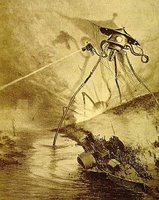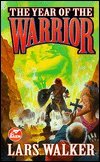Can a Christian Be a Comic Book Author?
Q: I like writing and drawing super-hero-type comic books. I’m also a Christian who is learning and growing in the Lord. I know that God gave me artistic and writing talent but I don’t want to sin against Him. So, I guess the short question is, can I be a good Christian and still write and draw fantasy and science fiction comics?
 A: I like this! After all my years of receiving questions, you asked the first one about our Christian obligations as writers.
A: I like this! After all my years of receiving questions, you asked the first one about our Christian obligations as writers.In response, the short answer is, “Yes.” However, you probably want more than this short reply, so we’ll go into a bit of detail. Some devout Christians believe that “fiction,” regardless of type, always equates with “lie.” Thus, whether comic books or classic literature, they shun reading or writing in the genre.
Others have the idea that certain topics or approaches are fine while others are misguided, sinful, or outright demonic. The most extreme of these may approve of moral stories based on Scripture, fictionalized accounts of Christian life, or stories based on Biblical characters and events. They will avoid “secular” fiction. Various others have their own criteria for judgment. One faction may approve of “spiritual” books plus certain “classics.” Others opine that anything without objectionable language or topics is fine for the discerning Christian. But let one “dirty” word, one mention of sexual indecency, or one violation of that individual’s moral code be mentioned and the work is taboo.
 We probably could spend hours finely sorting each school of thought on Christians reading and writing fiction and still not list them all. Yet we really don’t need to, if we have a clear basis for deciding what we may, can, should, or must do.
We probably could spend hours finely sorting each school of thought on Christians reading and writing fiction and still not list them all. Yet we really don’t need to, if we have a clear basis for deciding what we may, can, should, or must do.In the Bible, fiction is often used to tell the “real truth.” Usually, this is in the form of a parable or an illustrative narrative. This doesn’t mean that because Nathan, Isaiah, Ezekiel, John, or Jesus used “story language” we are automatically given carte blanche to do the same under any circumstances. However, it opens the possibility for the edifying use of fiction.
 This has been recognized through most of the Christian Church’s history. Stories encouraging human virtue — one of the prime elements of any hero, super or otherwise — are almost as old as humanity itself. Probably the use of story in sermons began with the first sermons preached.
This has been recognized through most of the Christian Church’s history. Stories encouraging human virtue — one of the prime elements of any hero, super or otherwise — are almost as old as humanity itself. Probably the use of story in sermons began with the first sermons preached.Among noted authors of the recent past, C. S. Lewis told both Christian and moral stories through his fiction. Tolkein’s Lord of the Rings is awash with Christian undercurrents, although it’s truly not an allegory of the Faith. Even wise unbelievers’ fiction can be profitably used by the believer: Witness Martin Luther’s strong approval of Aesop’s Fables.
 Moving on to contemporary fiction, I’ve recently become familiar with the works of a living Christian who writes in the general categories which you question. Lars Walker weaves solid Christian theology into tales also involving the ancient Norse gods such as Odin and Thor in his novels The Year of the Warrior and Wolf Time. Dr. Gene Edward Veith reviewed Year of the Warrior at the Luther Library blog.
Moving on to contemporary fiction, I’ve recently become familiar with the works of a living Christian who writes in the general categories which you question. Lars Walker weaves solid Christian theology into tales also involving the ancient Norse gods such as Odin and Thor in his novels The Year of the Warrior and Wolf Time. Dr. Gene Edward Veith reviewed Year of the Warrior at the Luther Library blog.I would only warn about a few things: One is that you try to avoid giving unnecessary offense. Some may always get upset at what you write or draw; that doesn’t mean you go out of your way to make this happen. Second, there’s the matter of not encouraging occult behavior. While special powers or abilities may be part of the heroic package, do you want to promote someone who receives strength from demonic forces, manipulates dark powers, or acts not as a son of God but as Satan’s bastard child? Third, is it edifying? Does it encourage positive thoughts and behavior or discourage evil, immoral practices? This does not mean that you must avoid writing about all these things, for they are part of the human condition. However, we should take care that we don’t use such devices to titillate people or encourage the behavior depicted — rather, I would encourage setting sinful or illegal behavior as something to be overcome.
 In my mind, the Daredevil character from Marvel Comics makes an excellent example. While he certainly is a fallen man with his own weaknesses, temptations, and sins, he continually returns to his priest for confession and spiritual counsel. He knows the strength of evil within and without himself and recognizes his need for forgiveness and strength in order to remain whole and at peace with God. Much of this also showed through in the 2003 Daredevil film. Regular movie goers will also recognize the somewhat novel portrayal of a Christian clergyman as strong, decisive, honest, and faithful rather than as a whipping boy for antichristian biases.
In my mind, the Daredevil character from Marvel Comics makes an excellent example. While he certainly is a fallen man with his own weaknesses, temptations, and sins, he continually returns to his priest for confession and spiritual counsel. He knows the strength of evil within and without himself and recognizes his need for forgiveness and strength in order to remain whole and at peace with God. Much of this also showed through in the 2003 Daredevil film. Regular movie goers will also recognize the somewhat novel portrayal of a Christian clergyman as strong, decisive, honest, and faithful rather than as a whipping boy for antichristian biases. Let’s consider just a bit more before ending. The Preacher warns in Ecclesiastes 12:12, “My son, beware of anything beyond these. Of making many books there is no end, and much study is a weariness of the flesh.” Yes, the Scriptures go well beyond the proverbs and illustrations of Ecclesiastes, but the later writings don’t merely retell what came before. Rather, they continually move us to an enhanced understanding and appreciation of God’s work of salvation. Similarly, I encourage you to keep your craft new, fresh, and positively thought-provoking.
Let’s consider just a bit more before ending. The Preacher warns in Ecclesiastes 12:12, “My son, beware of anything beyond these. Of making many books there is no end, and much study is a weariness of the flesh.” Yes, the Scriptures go well beyond the proverbs and illustrations of Ecclesiastes, but the later writings don’t merely retell what came before. Rather, they continually move us to an enhanced understanding and appreciation of God’s work of salvation. Similarly, I encourage you to keep your craft new, fresh, and positively thought-provoking.In line with this, remember an earlier verse from Ecclesiastes: “Whatever your hand finds to do, do it with your might, for there is no work or thought or knowledge or wisdom in Sheol, to which you are going. (9:10)” Thus, if you have the talents and desire of an author and artist, and if your work is not sinful but in some way helps your neighbor, even by lifting his spirits or by promoting courage, compassion, and other virtues, then do it now, do it well, and do it enthusiastically. Once you die, there’s no way to pursue a new career, so if you’re going to do it, “do it with all your might.”
Scripture quoted from The Holy Bible, English Standard Version™, © 2001 by Crossway Bibles.
Send email to Ask the Pastor.
Walter Snyder is the pastor of Holy Cross Lutheran Church, Emma, Missouri and coauthor of the book What Do Lutherans Believe.
Technorati Tags: Christian | literature | fiction | fantasy | science fiction | comic books | writing | vocation | super hero | Daredevil | Lars Walker | Wolf Time | The Year of the Warrior | C. S. Lewis | J. R. R. Tolkein | Lord of the Rings

3 Comments:
This was a wonderful answer, Pastor. Thanks. I'm sure the original questioner appreciated it.
if this isn't submitted to the Lutheran Carnival for all to enjoy, I'll be very upset. Great post!
I also have a question that has been on my mind for a long time. I, too, is a person trying to connect and know about God. And I, too have been gifted with artistic drawing talent. However, this question of mine has been halting my progress for a long time. So my question is, as a Christian, what are the things I can draw and not draw? And how can I base my drawings through the Bible?
Post a Comment
<< Home